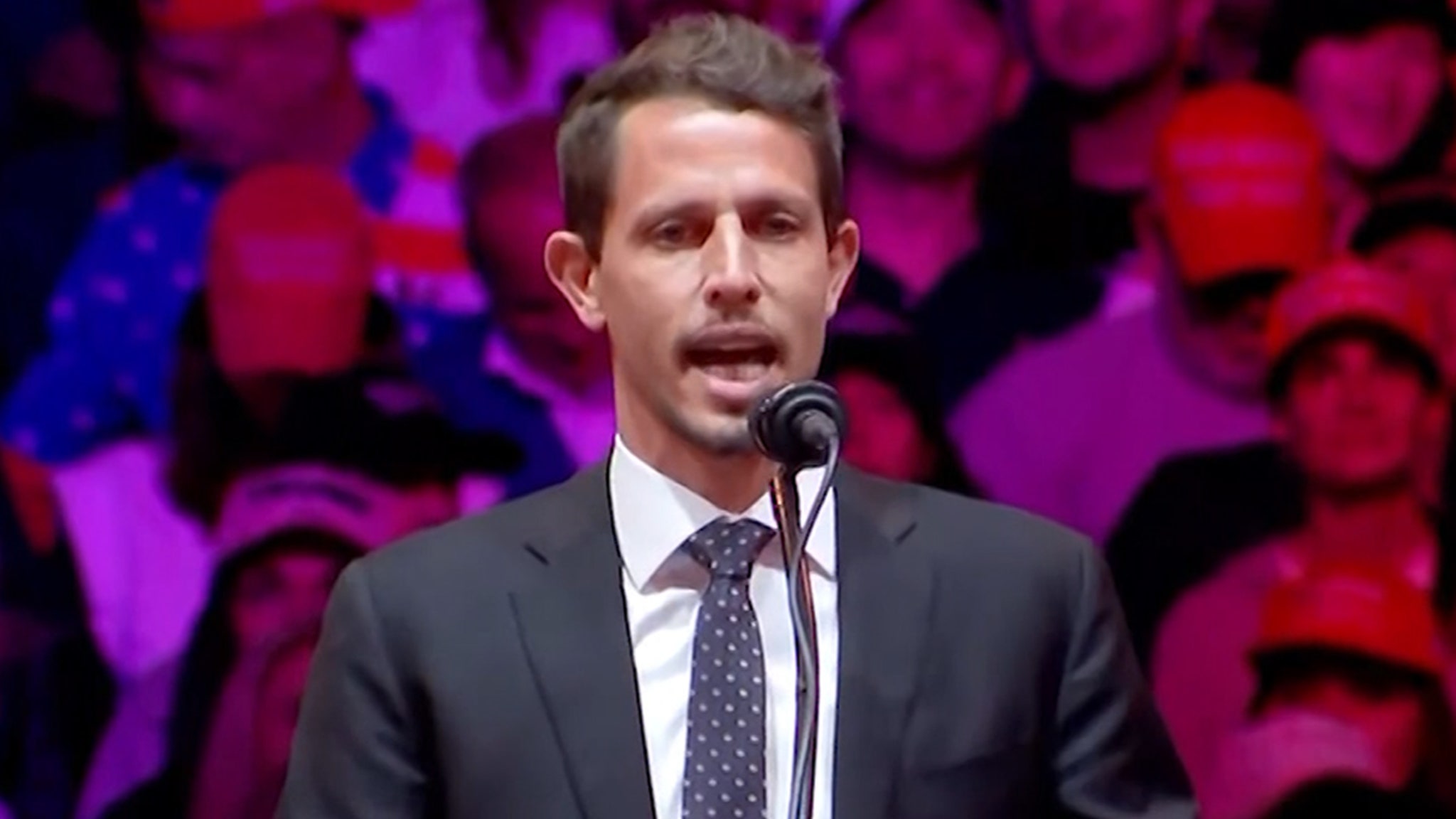Products You May Like
In the world of comedy, crossing lines is often a subject ripe for controversy, and comedian Tony Hinchcliffe recently found himself at the center of a heated debate following his performance at Donald Trump’s rally in Madison Square Garden. His jokes, which typically push the boundaries of humor, took an unexpected turn that sparked outrage, particularly aimed at Puerto Rico.
During the event, which occurred on a Sunday in New York City, Hinchcliffe’s routine included a quip about the floating island of garbage in the ocean, which he referred to as Puerto Rico. This punchline did not land as he may have hoped, with many crowd members appearing uncertain of how to react in the moment. Even Hinchcliffe seemed to sense that he might have crossed a line, acknowledging the tension in the air.
The backlash from the joke was swift, with high-profile figures voicing their disapproval. Among them were Vice Presidential candidate Tim Walz and Congresswoman Alexandria Ocasio-Cortez, who expressed their disgust during a Twitch stream. Ocasio-Cortez stated that the comment reflected a broader disrespect towards Puerto Ricans, emphasizing their status as American citizens who serve in the military and pay taxes. Walz echoed this sentiment, pointing out that mocking such a significant portion of the population is unacceptable.
The social media response was demonstrative of the public’s reaction, with many expressing outrage at Hinchcliffe’s comments. Kamala Harris’ campaign account also weighed in, sharing their thoughts on the situation and reiterating the harmful implications of such jokes.
Hinchcliffe, however, took to social media to defend himself, arguing that his humor was being misconstrued and taken out of context. He expressed frustration at the reaction from public figures, asserting that his comedy is meant to be inclusive and that he often makes jokes targeting a wide spectrum of audiences. He invited those critiquing him to view his entire set rather than focusing solely on the controversial moment.
The incident underscores the delicate balance that comedians must navigate when engaging audiences, particularly in a politically charged environment. While humor can serve as a unifying force, it can also lead to division, especially when sensitive topics are involved. The reactions to Hinchcliffe’s joke affirm the notion that not all audiences will receive humor in the same way, and what might be fun for one group can be deeply offensive to another.
In light of this controversy, it’s evident that comedians will continue to explore the boundaries of comedy, often facing scrutiny for their choices. As social discussions surrounding race, economics, and identity grow, public figures and audiences alike will keep the pressure on comedians to be accountable for their words—even in the name of humor. The ongoing dialogue about humor, respect, and the responsibility of entertainers will likely shape future performances and the comedic landscape.Tony Hinchcliffe, a well-known comedian, has found himself embroiled in controversy following a recent set that has sparked outrage among various public figures, including singer Ricky Martin and Congressman Ritchie Torres. The heat intensified after Hinchcliffe made jokes that many interpreted as targeted at the Puerto Rican community. In a swift rebuttal, Hinchcliffe asserted that his comedy touches on a broad array of topics and people, not restricting his humor to any single group.
The uproar followed a series of posts from influential figures who expressed their discontent regarding Hinchcliffe’s material. Ricky Martin particularly shared a poignant sentiment encapsulating the sentiment of many, stating, “This is what they think of us,” along with an image that resonated with the sentiments expressed by various communities. The backlash wasn’t limited to Martin; other prominent personalities like Bad Bunny and Ángel Cintrón of the Puerto Rico Republican Party have also weighed in on the matter, further highlighting the escalating tension.
In the aftermath of the jokes, it appears that social media is ablaze with discussions surrounding this event, illustrating the power of comedy to ignite serious conversations about race and representation. Hinchcliffe’s response suggests a desire to clarify his intentions and to highlight the nature of stand-up as a genre meant to critique and entertain across the spectrum.
Interestingly, if you’re a fan of comedy, you may recall Hinchcliffe from a recent roast involving NFL star Tom Brady, where his sharp tongue took aim at several celebrities, including Kim Kardashian. That appearance showcased his ability to blend humor with sharp social commentary, a hallmark of his comedic style that some fans appreciate, but others find controversial.
While Hinchcliffe maintains that his routines are multifaceted and not intended to offend any particular group, the backlash indicates a growing sensitivity around race and representation in the arts. Critics argue that humor should not come at the expense of marginalized communities, a sentiment echoed by those who have taken to platforms like Twitter to voice their concerns.
As the outrage continues to swell, it’s expected that more celebrities will chime in, either in favor or against Hinchcliffe. The coming days could see an ongoing discourse complexly entangled between humor, free speech, and social responsibility, prompting us all to consider the boundaries of comedy in today’s cultural landscape. With each reaction, the case raises intriguing questions about the role of comedians in shaping narratives and the impact of their words on public discourse.
In summary, Hinchcliffe’s recent jokes have stirred significant backlash revealing the fine line comedians walk and how the audience’s perception can differ dramatically from the intent. It seems that in the current cultural climate, humor remains a potent tool for both connection and division, and the ongoing discourse around Hinchcliffe’s set is just one more chapter in this dynamic conversation. As reactions continue to unfold, it will be fascinating to witness how this controversy develops and the implications it may hold for the world of comedy.
